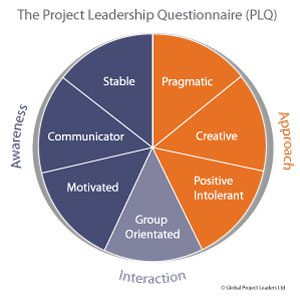Because the terms “project” and “project manager” are open to so many different interpretations, employers are naturally wary of candidates who confidently call themselves project managers, while being unable to produce any evidence that they are indeed project professionals. This is why most project organisations, businesses and public sector programmes, specify project qualifications as a must for any candidates seeking positions as project managers.
In this article, we’re going to have a look at how to become a recognised and respected project manager.

Choose a Widely used Project Management Qualification
There are a number of different project qualifications out there, but undoubtedly the one that is most frequently requested is PRINCE2. This is because it has been around a long time and is used across a wide range of industries and businesses, both in the UK and across the world. Since it uses processes and structures that can be adapted to any kind of project context, it has become the de facto standard.
In addition, PRINCE2 includes many areas of factual project knowledge that you will need, in order to become a project manager. These include risk management, project governance, planning and so forth. So by qualifying in PRINCE2, you will not only understand how to use a structured method, but you will also acquire a considerable body of knowledge about project management as a discipline.
The PRINCE2 Foundation level qualification gives you an understanding of the basic method and helps to explain key concepts such as risk management. For those intending to make a career in project management, however, the follow-on level, PRINCE2 Practitioner is essential. At this level, you learn how to apply the method in a range of situations.
LOOKING FOR
Project Manager Training
Soft Skills and Leadership
However, to make yourself really attractive to an employer, it’s also important to place significant emphasis on the softer project management skills that aren’t taught as part of a structured methodology or qualification. These can be crucial in delivering a successful project when the manager is facing real-world challenges. Leadership is one of the most important soft skills required for any project manager.
There’s a significant gap between being a good manager and being a good leader. The best project managers combine inspirational leadership with efficient management. Project teams are often made up of people who may not be from the same organisation or who have never worked together before. It can be very difficult to establish a positive culture on the project unless a skilled leader is able to set the tone. A great project team leader is able to take the temperature of the team and know when people need motivating and when they need to be left alone to get on with it.
These leadership skills go hand in hand with the ability to communicate. If a project manager feels that they are not getting the message across, they need to look not just at the information they’re putting over but also the way in which they are delivering their message. The great benefit of being the manager is that if you feel a 15 minute stand up meeting every morning is more effective than a long team meeting on a Friday afternoon, then you have the freedom to change the arrangements.
Some people feel that good communicators are born not made, but this isn’t the case. Be clear about what you want to communicate, make sure that you are honest and straightforward and admit what you don’t know. Most of all, adapt your tone, content and delivery to your audience whether that’s the project board, the team or the senior user.
Strategic Planning
It’s also important to move from project planning to strategic business planning. As a project manager, you may well have a full-time project planner working on your team. At any rate, you should certainly not be planning activities in detail or you’ll find yourself managing the plan rather than the project.
One of the skills to learn is to leave product based planning or task assignments to the team leader and to move towards strategic business planning. This is more a case of taking into account risks, external factors and the wider business landscape than of scheduling.
Formal qualifications in a recognised project management methodology will get you a long way. But don’t forget those less formal skills that will get the project to the finish line in good shape.
About the Author: David Baker is marketing manager at PRINCE2 Training, who provide courses and certification in PRINCE2, Agile, Lean Six Sigma, ITIL, PMP, and Scrum project management methodologies. You can connect with David and PRINCE2 Training on Twitter, Facebook and LinkedIn.



